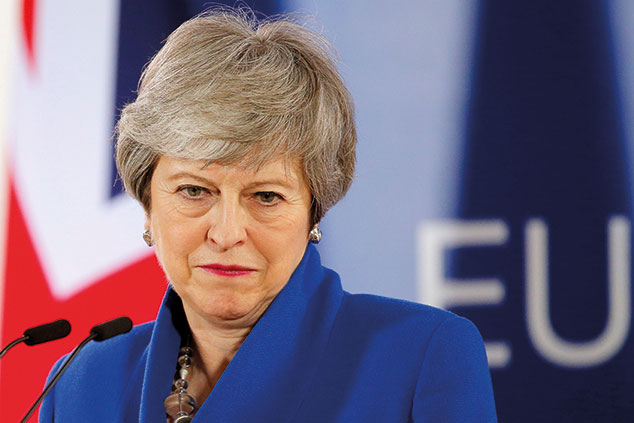
MPs will vote on Prime Minister Theresa May’s Brexit compromise in the first week of June, regardless of whether the government and Labour have reached an agreement by then, says the BBC. Downing Street says a vote on the Withdrawal Agreement is “imperative” if it is to be on the statute book before the Commons’ summer recess starts in late July. If the deal is defeated – and Labour says it will vote it down without a cross-party agreement – the UK is set for a no-deal exit or the revocation of Article 50.
Cross-party talks, which are intended to address future EU ties rather than alter the Withdrawal Agreement, which Brussels says is non-negotiable, began in April after May’s deal was rejected three times by MPs. Although May says the government would propose a close customs arrangement with the EU, Labour is seeking a permanent customs union. Senior Tories warn that if May cedes ground on this she risks losing the “loyal middle” of her party, says Sean Morrison in the Evening Standard.
Changing political landscape
Labour is also concerned about the shakiness of May’s position, say George Parker, James Blitz, Jim Pickard and Laura Hughes in the Financial Times. As shadow chancellor John McDonnell observed, it is hard to see how Labour could “march our troops up the hill” when May might soon be replaced by a eurosceptic leader such as Boris Johnson, who would “overturn any cross-party deal”. Corbyn is also under pressure to reject any deal that does not include a second referendum, which May has ruled out, and the DUP is still digging its heels in over the Irish backstop.
May’s allies believe the European elections could tip the balance. If Nigel Farage’s Brexit Party takes first place as expected on 23 May, Labour MPs may be scared into backing the deal. Success for Farage would also “embolden the crash-out faction of the Conservatives”, says Andrew Rawnsley in The Observer.
“Mass defections of Tory voters” will make the struggle to succeed May a “competition to see who can sound the most Farage-iste”. The “most effective antidote” would be a “powerful result for the parties unequivocally committed to reversing Brexit” – the Lib Dems, the Greens and Change UK – and although it is too late for them to unite and field a common slate of candidates (which could have helped them secure ten more seats, notes Jack Maidment in The Daily Telegraph), it is “not too late to behave as friendly allies”. Since the “bulk” of Labour party members and MPs are against Brexit, voting Labour will ultimately be “counted on the anti-Farage side of the ledger” too, claims Tony Blair in The Guardian. “But whatever you do, vote.” This is “a vote for the Farage Brexit – or against it”.
For now, all Farage has to do to “harvest a large haul of votes” is to “repeatedly cry the word ‘betrayal’”, says Rawnsley. It is “pointless” to mock the Brexit Party for its lack of a manifesto. There is likely to be plenty of time for that, says Matthew Lynn in The Daily Telegraph. If May and Corbyn fail to “cook up a deal”, the Brexit wrangling could drag on for years and the Brexit Party will become a “part of the political landscape”.
To endure, it should come out in favour of a managed no-deal exit and prepare for “lots of side deals” from visa-free travel to customs checks, instead of “one big one”. It should “go for zero tariffs” and start unwinding 40 years of EU rules that “didn’t work for the UK”. The Brexit Party should be pro-enterprise, pro-competition, and “realistic about helping industries and regions that get hit hardest by Brexit. Who knows, it might even be a pretty successful formula.”